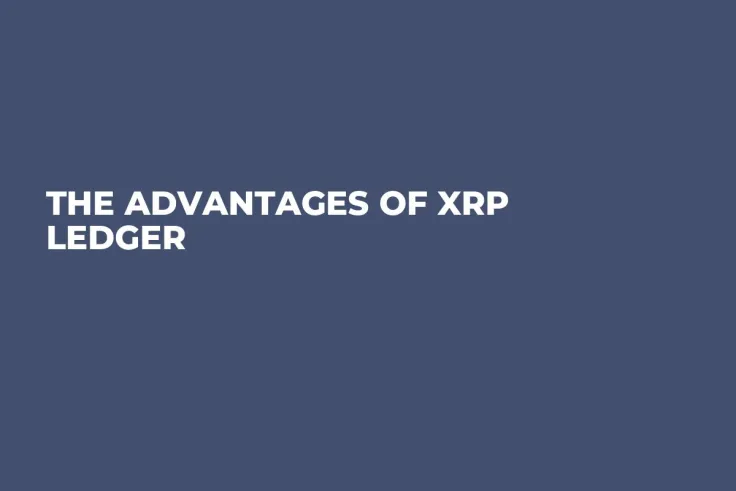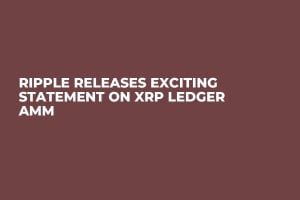
Disclaimer: The opinions expressed by our writers are their own and do not represent the views of U.Today. The financial and market information provided on U.Today is intended for informational purposes only. U.Today is not liable for any financial losses incurred while trading cryptocurrencies. Conduct your own research by contacting financial experts before making any investment decisions. We believe that all content is accurate as of the date of publication, but certain offers mentioned may no longer be available.
What is XRPL?
XRPL is a decentralized public Blockchain enabling quick transfers of XRP, fiat currencies, and digital assets, open to all for development.
Jed McCaleb, along with Arthur Britto and David Schwartz, established Ripple Labs in 2012 with the vision of creating the XRP Ledger (XRPL). This initiative aimed to develop a robust ledger technology capable of supporting not only the native digital asset, XRP, but also serving as a global payment infrastructure.
Ripple Labs aimed to tackle the inefficiencies and delays inherent in traditional financial systems by introducing a decentralized ledger capable of settling transactions in seconds. This represented a significant departure from Bitcoin's proof-of-work model, as XRPL implemented a unique consensus mechanism known as the "XRP Ledger Consensus Protocol."
Ripple Labs introduced XRPL to address traditional financial system inefficiencies, utilizing the XRP Ledger Consensus Protocol instead of Bitcoin's proof-of-work. This protocol ensures transaction order and validity without energy-intensive mining.
The Ripple Protocol Consensus Algorithm (RPCA) underpins XRPL, determining valid transactions collaboratively among validators. Unlike Bitcoin's PoW, RPCA is eco-friendly and fosters faster transaction confirmation.
Validators, a subset of nodes, validate transactions to prevent fraud in the XRP Ledger. Nodes maintain ledger copies, ensuring decentralization and network integrity. This structure enables secure, rapid transactions on XRPL.
High transaction speed
The XRP Ledger (XRP) prioritizes scalability and rapid transaction settlement, capable of processing a significant volume of transactions per second. With its ability to finalize transactions within seconds, the ledger is well-suited for diverse applications requiring fast and efficient transaction execution.
Its high scalability and swift transaction settlement empower users to conduct seamless transactions, enhancing productivity and responsiveness across various industries and use cases.
RPCA
The XRP Ledger employs a unique consensus algorithm called the Ripple Protocol Consensus Algorithm (RPCA). Unlike traditional proof-of-work (PoW) or proof-of-stake (PoS) algorithms, RPCA relies on a group of trusted validators to authenticate and validate transactions.
These validators collaborate to establish consensus on transaction sequence and legitimacy, ensuring the integrity and reliability of the network's transaction validation process. This innovative approach provides a secure and efficient environment for conducting transactions and business operations.
Decentralized finance (DeFi)
The XRP Ledger's incorporation of smart contracts and tokenization opens up avenues for decentralized finance (DeFi) applications. This facilitates the creation of innovative financial services such as lending, borrowing, and decentralized exchanges.
Leveraging its swift and scalable infrastructure, the XRP Ledger offers an optimal platform for building DeFi applications. This has the potential to expand access to financial services for underserved communities while reducing reliance on traditional intermediaries.
Security
The XRP Ledger prioritizes security by leveraging industry-standard digital signature systems like ECDSA, similar to Bitcoin. Moreover, it supports modern and efficient algorithms like Ed25519.
The platform's extensible software architecture allows for the seamless integration and disabling of algorithms, ensuring compatibility with evolving cryptographic standards.
Smart contracts
Equipped with advanced features such as Escrow, Checks, and Payment Channels, the XRP Ledger facilitates sophisticated financial applications, including those utilizing the Interledger Protocol. These features are complemented by robust safety measures, including a mechanism for amending the network and comprehensive checks to maintain invariant constraints.
Beyond its core functionality, the XRP Ledger boasts a fully-functional accounting system for tracking and trading obligations denominated in various currencies. Additionally, it incorporates an on-ledger decentralized exchange, enabling seamless settlement of long, cross-currency payment paths and atomic transactions involving multiple currencies.
Disadvantages of XRPL
- Centralization. Unlike many other cryptocurrencies that prioritize decentralization, the Ripple system is highly centralized. Ripple Labs maintains significant control over the supply of XRP tokens.
Regulatory issues. Ripple has faced regulatory scrutiny, particularly in the United States. The Securities and Exchange Commission (SEC) filed a lawsuit against Ripple, alleging that its control over the release of XRP tokens should have subjected it to securities regulations.
This legal uncertainty has led to several exchanges delisting XRP and could hinder institutional adoption of the Ripple system until the regulatory issues are resolved.



 Vladislav Sopov
Vladislav Sopov Dan Burgin
Dan Burgin